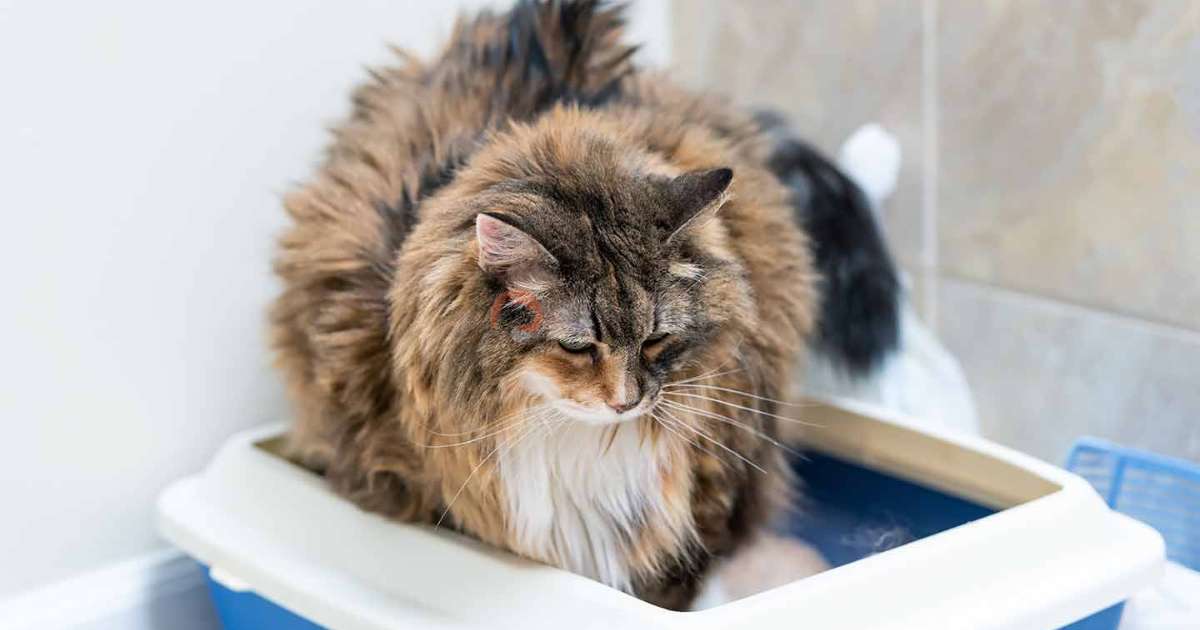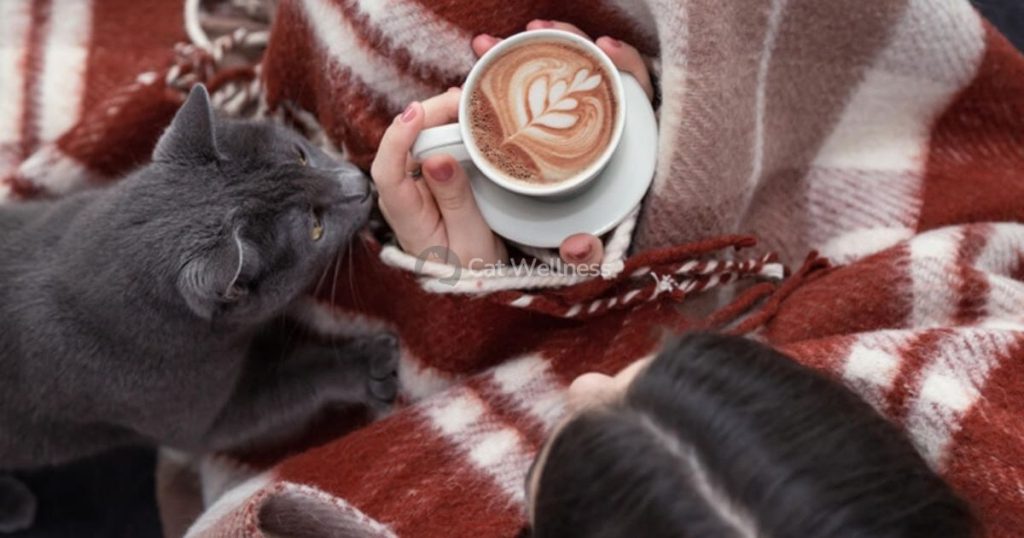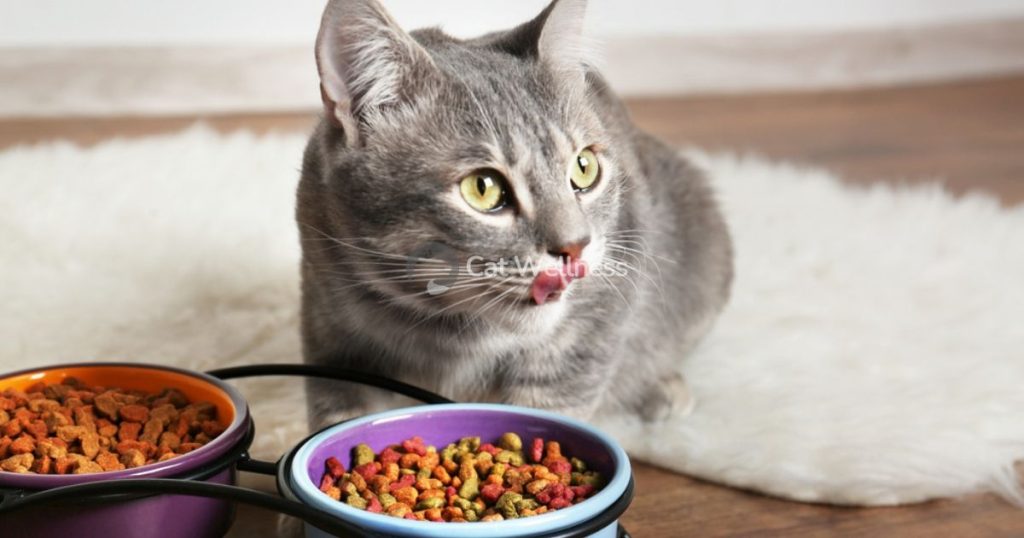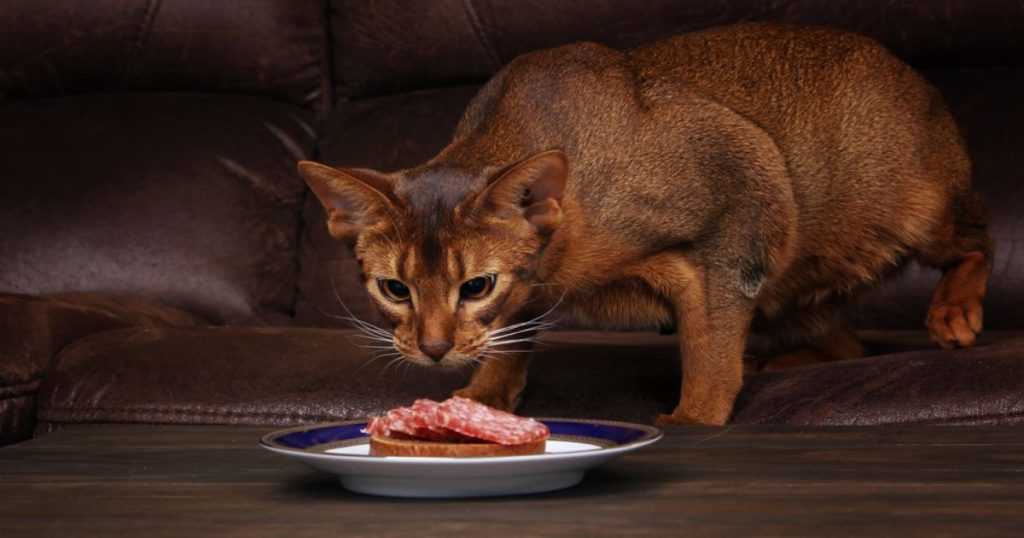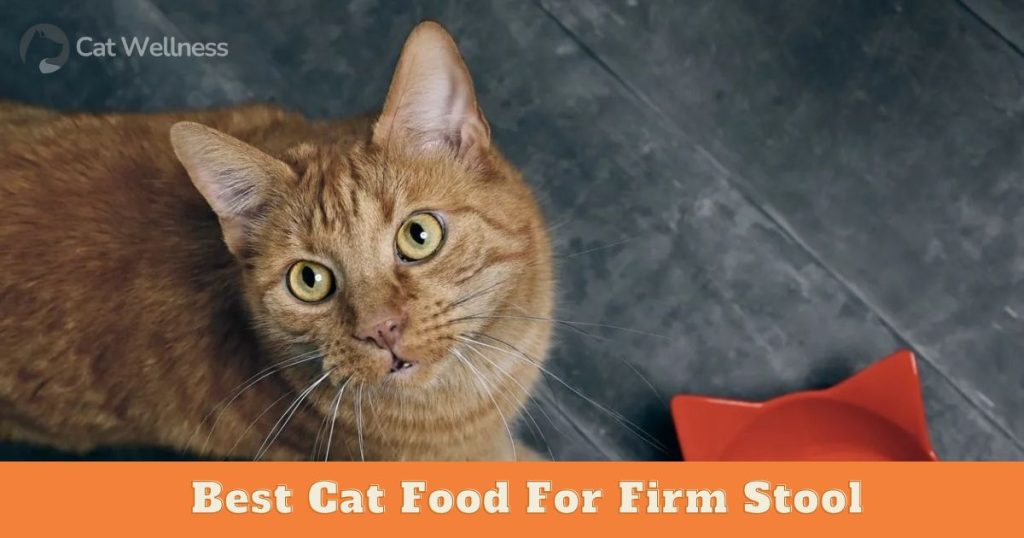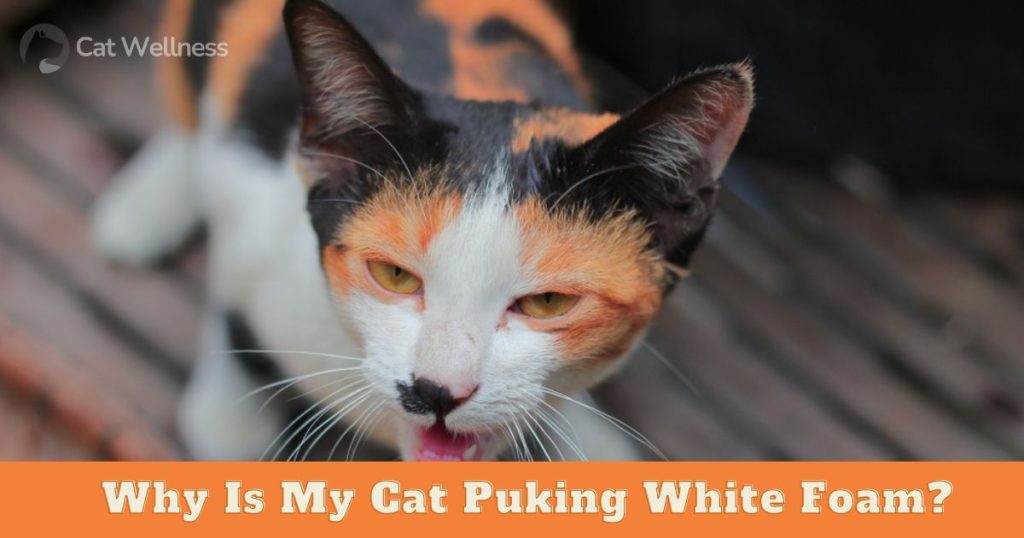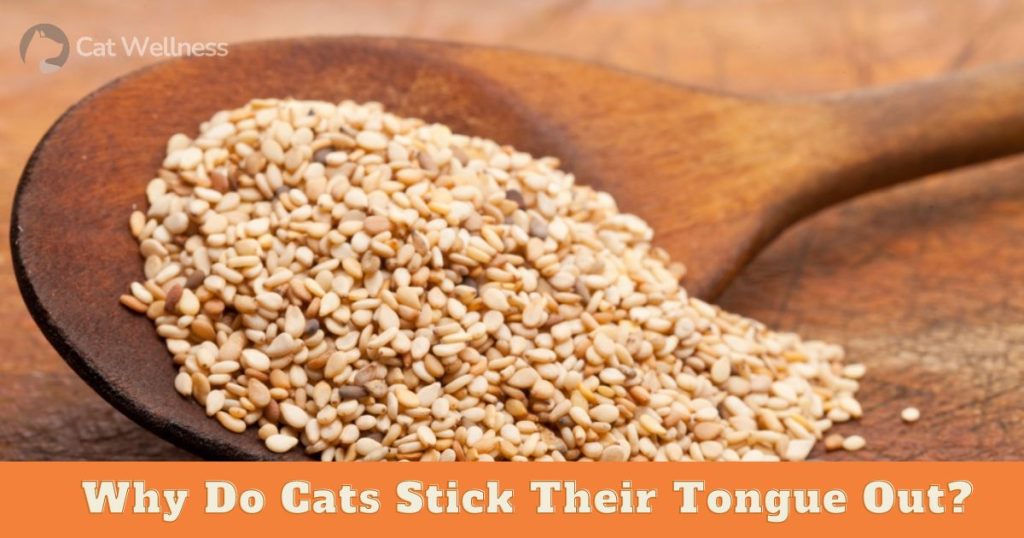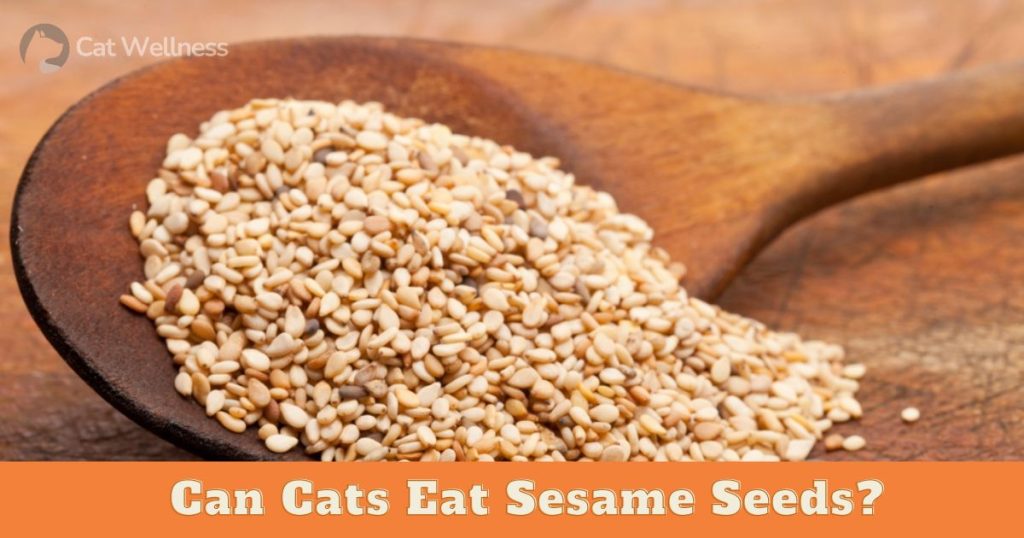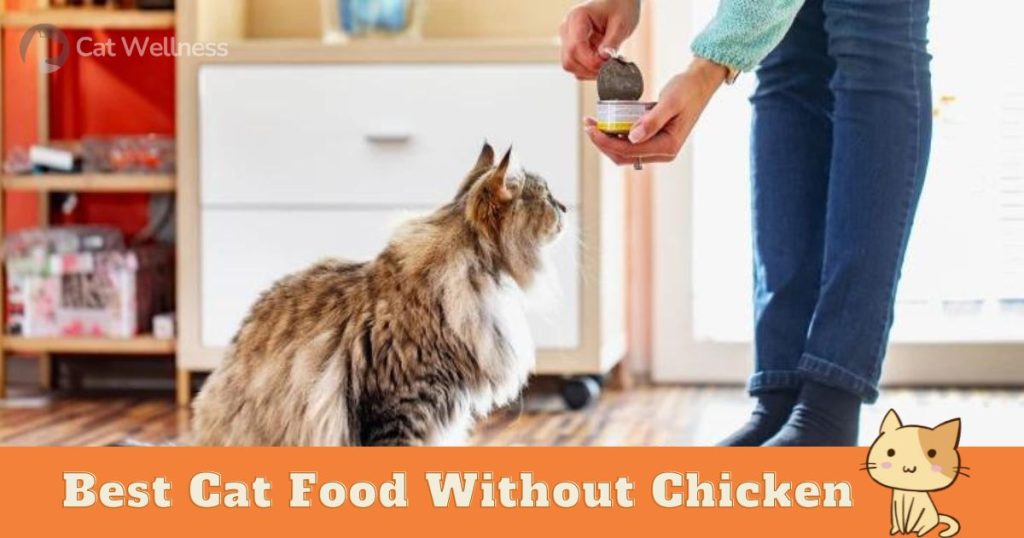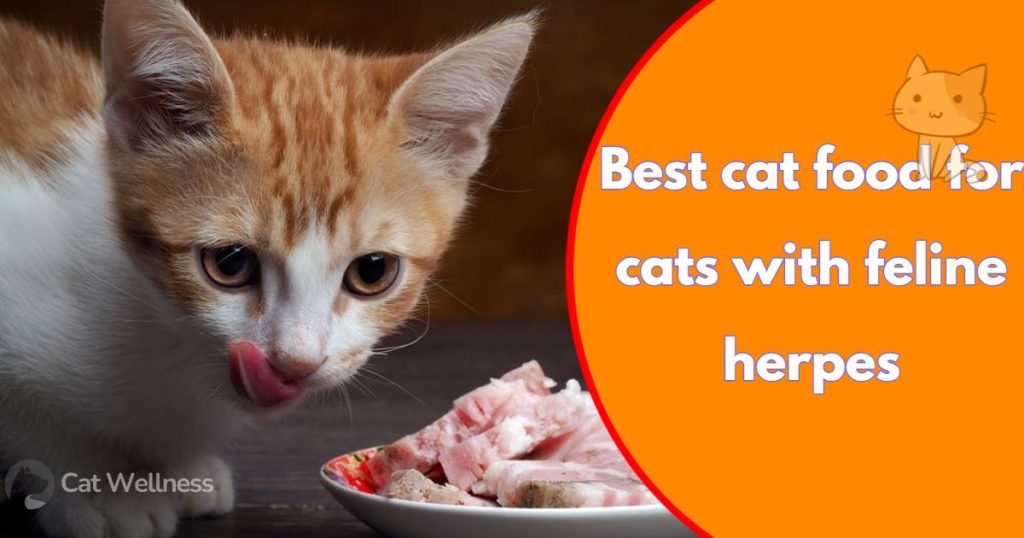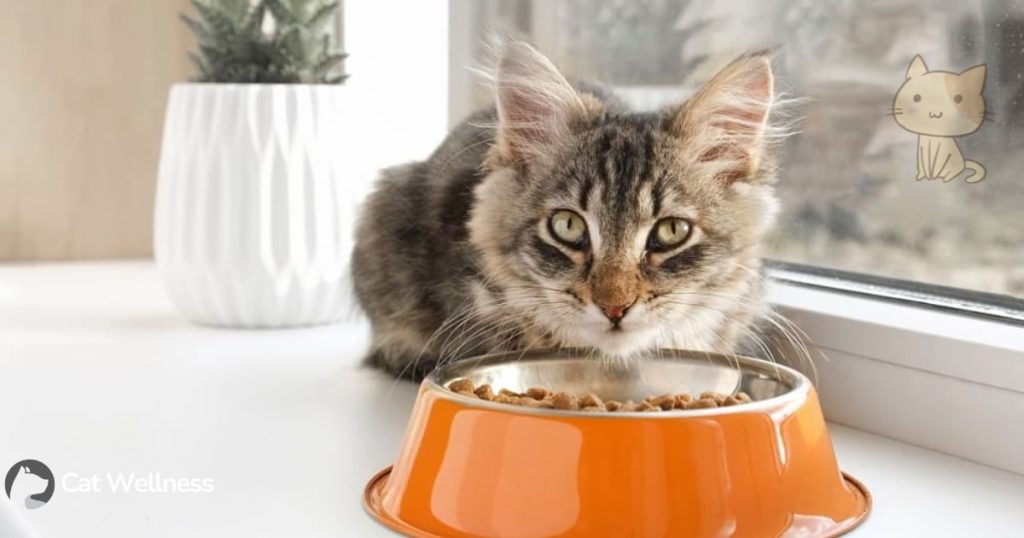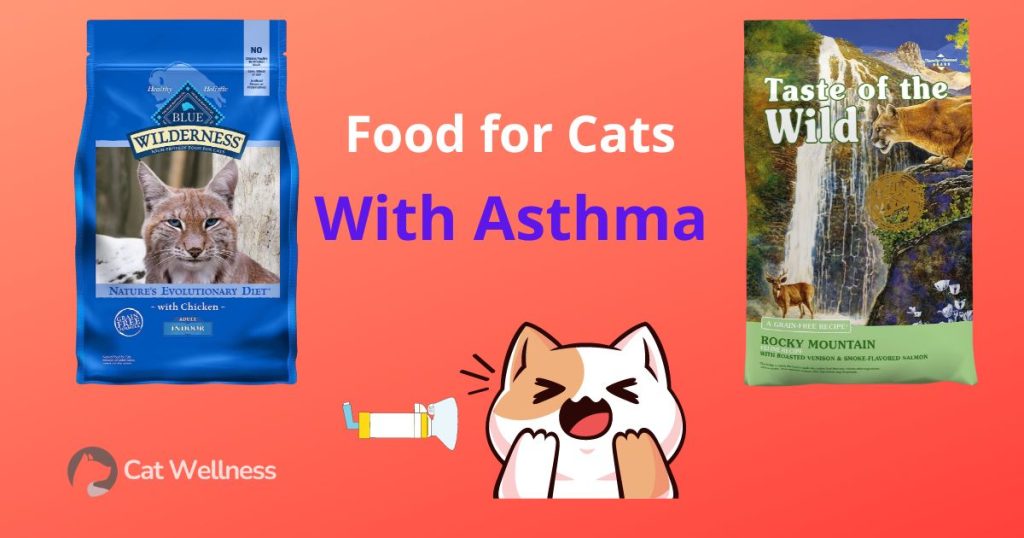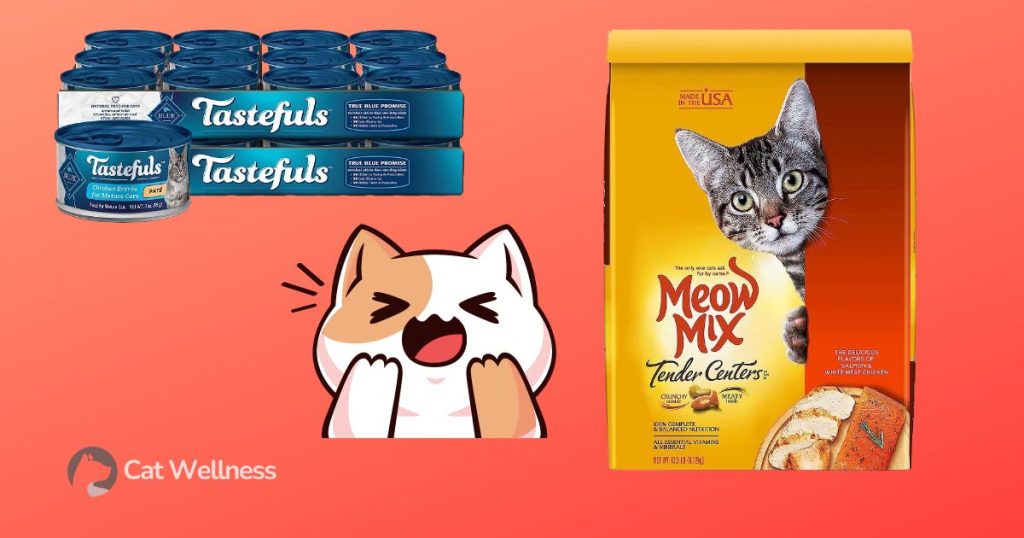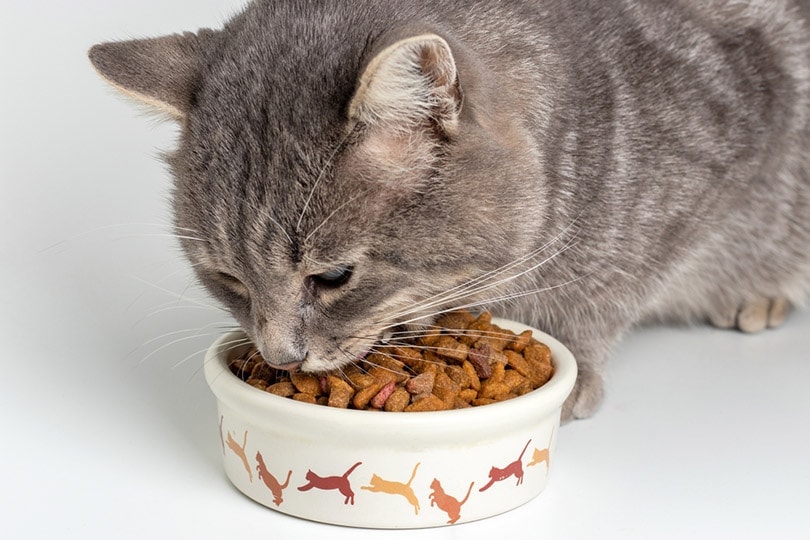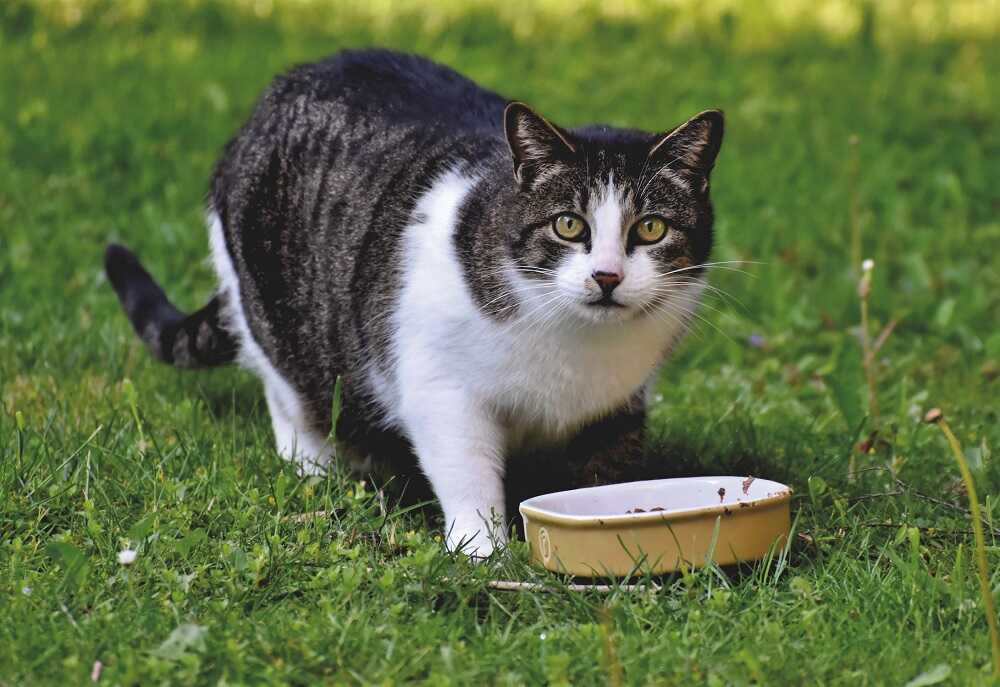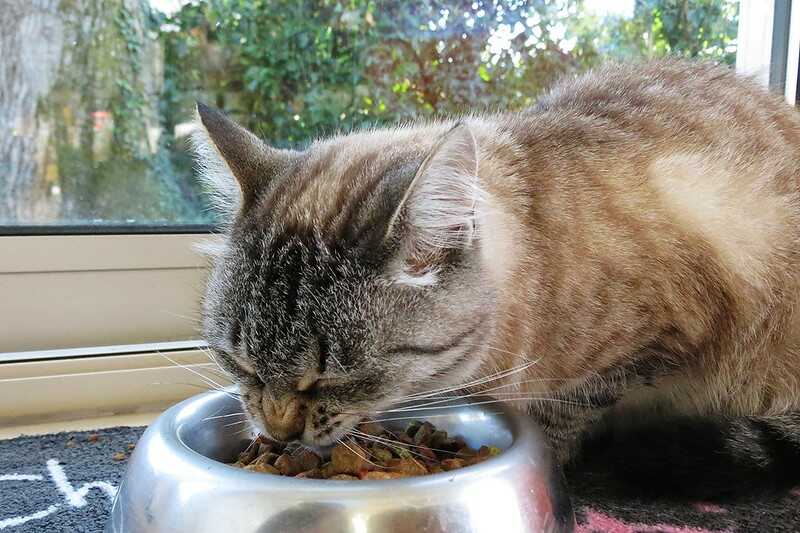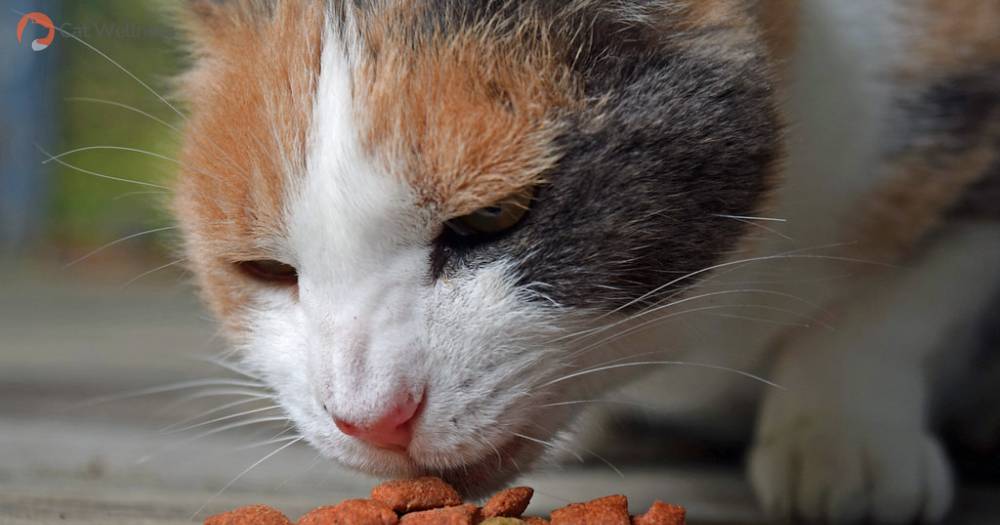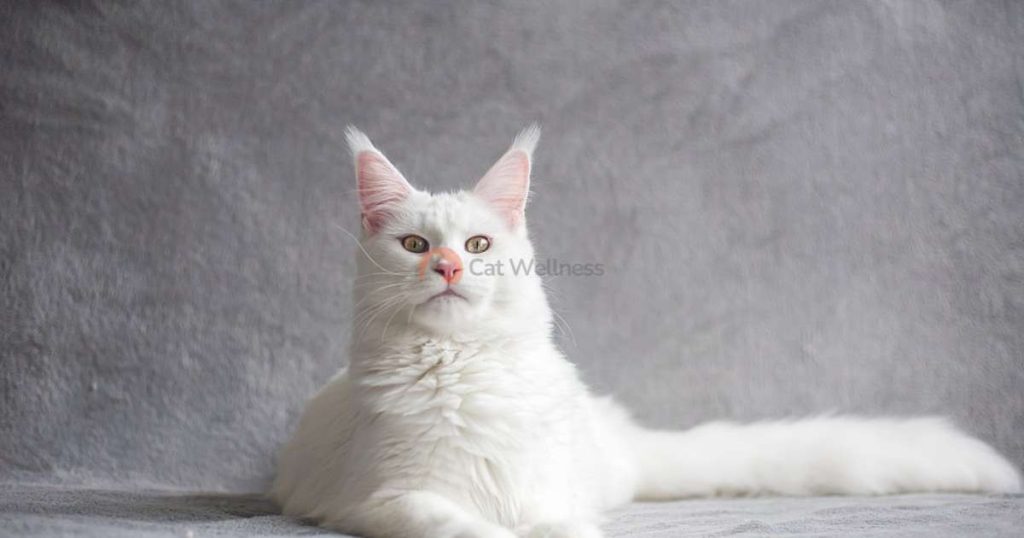You may modify your cats’ food at any point in their life. This might be due to their health, the fact that they have entered a new stage of their life, or just because you wish to test out a different product.
However, replacing cat food is not as simple as changing it immediately, and there are several factors to consider beforehand. Can changing cat food cause diarrhea? Yes, even coming with vomitting. Let’s go into the details right now!
Can Changing Cat Food Cause Diarrhea?
The answer is yes. When your kitten has been enjoying the same food for an extended period, any changes to their diet might induce diarrhea and vomiting.
If you recently updated your cat’s diet and they develop diarrhea, return to the prior food and see whether there is any improvement.
A cat’s stomach might be sensitive to some meals and components that are not suitable for them. Raw cat food, BARF, and high-fiber diets are types of diets that might induce diarrhea in cats.
Also, cats can be allergic to cow’s milk, which can cause diarrhea in rare situations.
Even moving from wet to dry food might lead to gastrointestinal discomfort in a cat. Before you want to switch your cat’s food, do some research on various brands and varieties.
Can you mix cat food with rice? Meats like chicken or turkey, when combined with wheat or rice, are easier to digest.
When Should You Change The Cat Food?
Here are some typical reasons to reconsider altering your cat’s diet:
Age Transitions
Cats’ dietary requirements alter as they mature from adoring kittens to wise old felines. So, choosing the finest cat food for their developmental phase ensures they receive the necessary calories and minerals.
You should alter your kitten to adult cat food at one year old and switch to mature or senior adult food at roughly seven years of age.
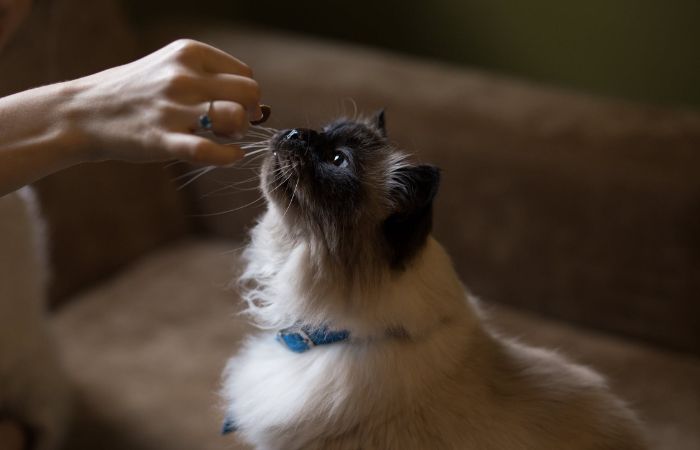
You can look at the pet food label to pick up the appropriate product for your felines. The American Association of Feed Control Officials (AAFCO) is an excellent resource for interpreting pet nutritional information and selecting the finest diet for your cat.
Health Issues
When a kitten or grownup cat is required to treat a disease or disability, your veterinarian may suggest a special meal to assist them in controlling the disease or recovering.
Several therapeutic meals are available, and your vet may assist you in selecting the best one for your cat’s condition.
Cats with renal problems, for example, will profit from a meal rich in protein but reduced in phosphorus, while felines with colic would benefit from diets that are easier to digest.
Picky Eater
A cat food swap may be acceptable if you own a picky eater. According to International Cat Care, even the consistency of the food is important to cats.
If you’ve recently adopted a fur ball, they may favor wet meals over dry ones. When you’re switching out food for your picky feline, be sure it has all the required nutrients.
Again, consult your vet when selecting a new diet that appeals to your cat’s discriminating palate while still delivering appropriate nourishment.
What are Tips for Stopping Your Cat’s Diarrhea?
No matter whether the reason for your pet’s diarrhea has already been identified or is still being examined, there are several options for making it feel better. Here are some suggestions:
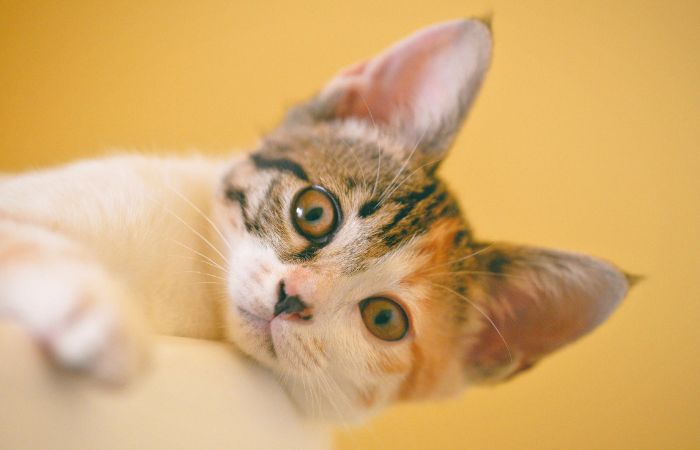
Avoid Medications
Many human antidiarrheal medications are harmful or lethal to cats, so never give them to your pet.
Antibiotics should be avoided until required since most antibiotics can aggravate disease or induce diarrhea.
If your pet has a bacterial illness and your veterinarian recommends antibiotics, you can help your kitten’s gut health before and after the prescription.
Give The Right Diet
Before making any dietary modifications for your cat, consult with your veterinarian. If your cat’s typical meal is heavy in carbs, inquire about gradually increasing the protein content.
Make sure your cat is getting regular, high-quality food. It’s advisable to avoid junk food and other supplements until the diarrhea disappear. Also, always provide lots of fresh water for your cat.
Add Fiber And Prebiotics
Begin with a very small quantity of fiber, particularly the prebiotic fibers psyllium and inulin.
This will help relieve diarrhea by collecting excess water in the cat’s stomach and supplying food for the beneficial bacteria in the digestive tract.
FAQs
When Do We Need to See the Vet?
If you’ve carefully picked food for your cat and gradually introduced it to them, but they still experience diarrhea, altering the meal is not to blame. And you don’t need to visit a vet.
Food allergies, worms, pollution, and stress can produce bloody, thick, or prolonged diarrhea in a kitten. Then, it’s important to see the veterinarian so that diarrhea may be treated promptly.
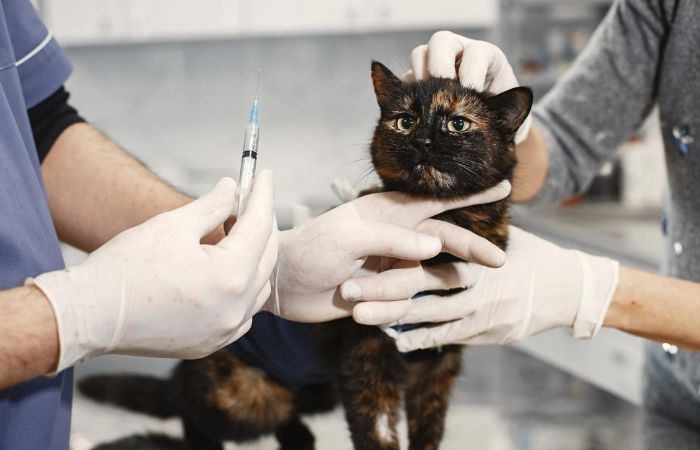
Does Switching Food Suddenly Hurt The Cat?
Yes. A rapid change in diet might cause stomach discomfort, and some food can even kill cats, so it’s better to gradually change your pet’s nutrition.
You’ll need to study different cat meals to determine which is ideal for your cat, depending on the stage in life, lifestyle, and medical issues.
Conclusion
Can changing cat food cause diarrhea? Yes, unexpected changes to your cat’s food might have unintended consequences, so you should make any modifications carefully and cautiously to maintain their well-being.
Recommended Reading

